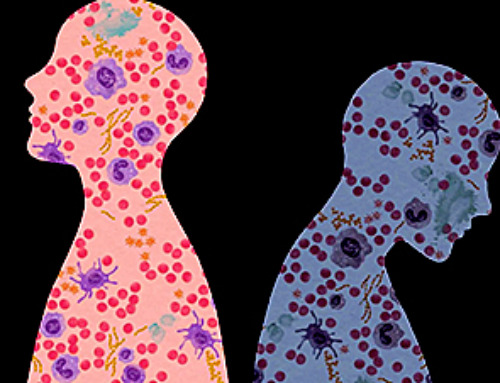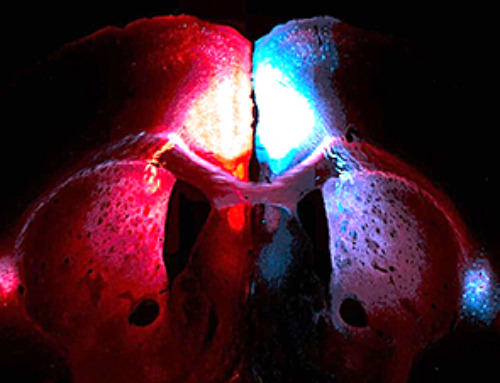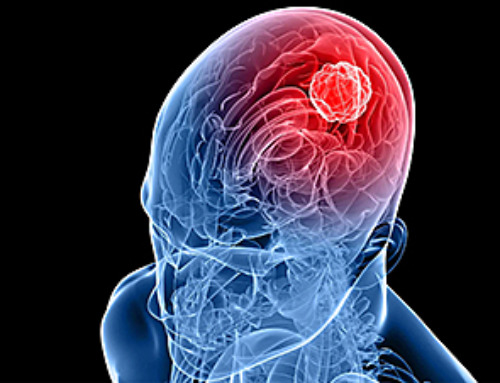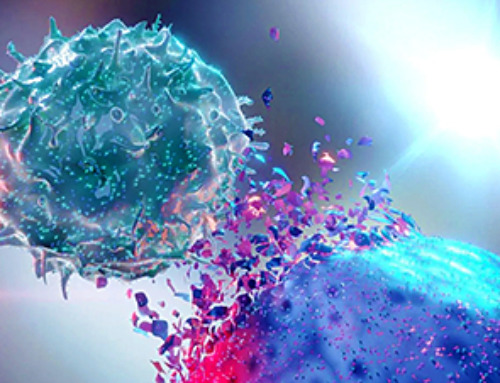Summary: AI’s remarkable abilities, like those seen in ChatGPT, often seem conscious due to their human-like interactions. Yet, researchers suggest AI systems lack the intricacies of human consciousness. They argue that these systems don’t possess the embodied experiences or the neural mechanisms humans have. Therefore, equating AI’s abilities to genuine consciousness might be an oversimplification.
Key Facts:
- AI systems, despite their sophisticated responses, do not have the embodied experiences characteristic of human consciousness.
- Current AI architectures lack essential features of the thalamocortical system, vital for mammalian conscious awareness.
- Biological neurons, responsible for human consciousness, are far more complex and adaptable than AI’s coded neurons.
Source: Estonia Research Council
The rise of the capabilities of artificial intelligence (AI) systems has led to the view that these systems might soon be conscious. However, we might underestimate the neurobiological mechanisms underlying human consciousness.
Modern AI systems are capable of many amazing behaviors. For instance, when one uses systems like ChatGPT, the responses are (sometimes) quite human-like and intelligent. When we, humans, are interacting with ChatGPT, we consciously perceive the text the language model generates. You are currently consciously perceiving this text here!
The question is whether the language model also perceives our text when we prompt it. Or is it just a zombie, working based on clever pattern-matching algorithms? Based on the text it generates, it is easy to be swayed that the system might be conscious.
However, in this new research, Jaan Aru, Matthew Larkum and Mac Shine take a neuroscientific angle to answer this question.
All three being neuroscientists, these authors argue that although the responses of systems like ChatGPT seem conscious, they are most likely not.
First, the inputs to language models lack the embodied, embedded information content characteristic of our sensory contact with the world around us. Secondly, the architectures of present-day AI algorithms are missing key features of the thalamocortical system that have been linked to conscious awareness in mammals.
Finally, the evolutionary and developmental trajectories that led to the emergence of living conscious organisms arguably have no parallels in artificial systems as envisioned today.
The existence of living organisms depends on their actions and their survival is intricately linked to multi-level cellular, inter-cellular, and organismal processes culminating in agency and consciousness.
Thus, while it is tempting to assume that ChatGPT and similar systems might be conscious, this would severely underestimate the complexity of the neural mechanisms that generate consciousness in our brains.
Researchers do not have a consensus on how consciousness rises in our brains. What we know, and what this new paper points out, is that the mechanisms are likely way more complex than the mechanisms underlying current language models. For instance, as pointed out in this work, real neurons are not akin neurons in artificial neural networks.
Biological neurons are real physical entities, which can grow and change shape, whereas neurons in large language models are just meaningless pieces of code. We still have a long way to understand consciousness and, hence, a long way to conscious machines.
News
This Is Why the Same Virus Hits People So Differently
Scientists have mapped how genetics and life experiences leave lasting epigenetic marks on immune cells. The discovery helps explain why people respond so differently to the same infections and could lead to more personalized [...]
Rejuvenating neurons restores learning and memory in mice
EPFL scientists report that briefly switching on three “reprogramming” genes in a small set of memory-trace neurons restored memory in aged mice and in mouse models of Alzheimer’s disease to level of healthy young [...]
New book from Nanoappsmedical Inc. – Global Health Care Equivalency
A new book by Frank Boehm, NanoappsMedical Inc. Founder. This groundbreaking volume explores the vision of a Global Health Care Equivalency (GHCE) system powered by artificial intelligence and quantum computing technologies, operating on secure [...]
New Molecule Blocks Deadliest Brain Cancer at Its Genetic Root
Researchers have identified a molecule that disrupts a critical gene in glioblastoma. Scientists at the UVA Comprehensive Cancer Center say they have found a small molecule that can shut down a gene tied to glioblastoma, a [...]
Scientists Finally Solve a 30-Year-Old Cancer Mystery Hidden in Rye Pollen
Nearly 30 years after rye pollen molecules were shown to slow tumor growth in animals, scientists have finally determined their exact three-dimensional structures. Nearly 30 years ago, researchers noticed something surprising in rye pollen: [...]
NanoMedical Brain/Cloud Interface – Explorations and Implications. A new book from Frank Boehm
New book from Frank Boehm, NanoappsMedical Inc Founder: This book explores the future hypothetical possibility that the cerebral cortex of the human brain might be seamlessly, safely, and securely connected with the Cloud via [...]
How lipid nanoparticles carrying vaccines release their cargo
A study from FAU has shown that lipid nanoparticles restructure their membrane significantly after being absorbed into a cell and ending up in an acidic environment. Vaccines and other medicines are often packed in [...]
New book from NanoappsMedical Inc – Molecular Manufacturing: The Future of Nanomedicine
This book explores the revolutionary potential of atomically precise manufacturing technologies to transform global healthcare, as well as practically every other sector across society. This forward-thinking volume examines how envisaged Factory@Home systems might enable the cost-effective [...]
A Virus Designed in the Lab Could Help Defeat Antibiotic Resistance
Scientists can now design bacteria-killing viruses from DNA, opening a faster path to fighting superbugs. Bacteriophages have been used as treatments for bacterial infections for more than a century. Interest in these viruses is rising [...]
Sleep Deprivation Triggers a Strange Brain Cleanup
When you don’t sleep enough, your brain may clean itself at the exact moment you need it to think. Most people recognize the sensation. After a night of inadequate sleep, staying focused becomes harder [...]
Lab-grown corticospinal neurons offer new models for ALS and spinal injuries
Researchers have developed a way to grow a highly specialized subset of brain nerve cells that are involved in motor neuron disease and damaged in spinal injuries. Their study, published today in eLife as the final [...]
Urgent warning over deadly ‘brain swelling’ virus amid fears it could spread globally
Airports across Asia have been put on high alert after India confirmed two cases of the deadly Nipah virus in the state of West Bengal over the past month. Thailand, Nepal and Vietnam are among the [...]
This Vaccine Stops Bird Flu Before It Reaches the Lungs
A new nasal spray vaccine could stop bird flu at the door — blocking infection, reducing spread, and helping head off the next pandemic. Since first appearing in the United States in 2014, H5N1 [...]
These two viruses may become the next public health threats, scientists say
Two emerging pathogens with animal origins—influenza D virus and canine coronavirus—have so far been quietly flying under the radar, but researchers warn conditions are ripe for the viruses to spread more widely among humans. [...]
COVID-19 viral fragments shown to target and kill specific immune cells
COVID-19 viral fragments shown to target and kill specific immune cells in UCLA-led study Clues about extreme cases and omicron’s effects come from a cross-disciplinary international research team New research shows that after the [...]
Smaller Than a Grain of Salt: Engineers Create the World’s Tiniest Wireless Brain Implant
A salt-grain-sized neural implant can record and transmit brain activity wirelessly for extended periods. Researchers at Cornell University, working with collaborators, have created an extremely small neural implant that can sit on a grain of [...]





















